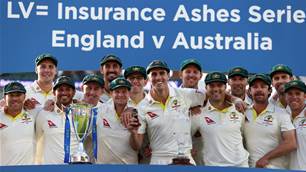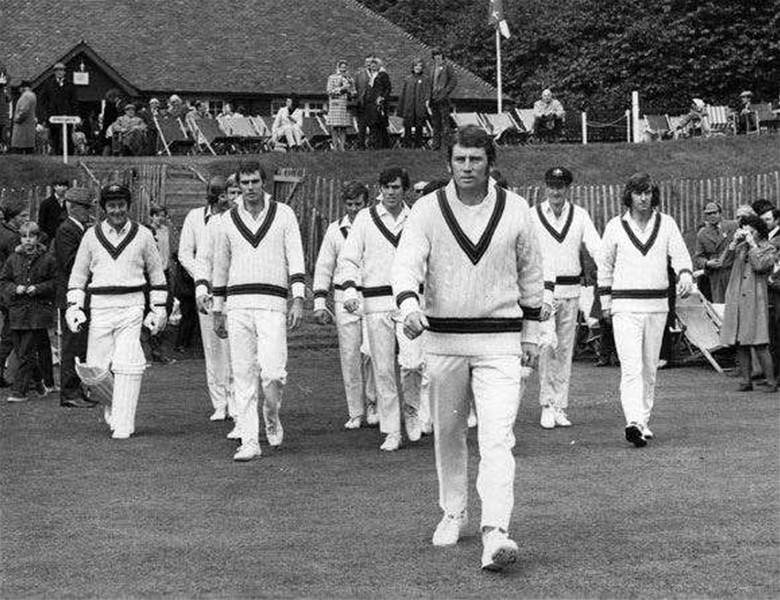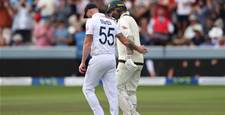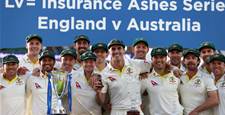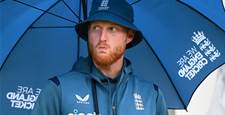Ian Chappell can sometimes sound tough in his criticisms on TV; that’s just him calling it as he sees it.
Ian Chappell can sometimes sound tough in his criticisms on TV; that’s just him calling it as he sees it. But he does show his warm, engaging colours in his new Book Chappelli: Life, Larrikins And Cricket. Both sides of the great man emerged over a few drinks he had with Inside Sport recently.
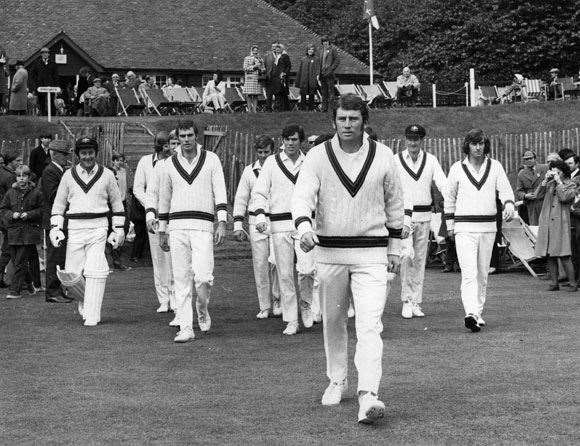 IM Chappell leads the Australians onto the field on the '72 Ashes tour of England.
IM Chappell leads the Australians onto the field on the '72 Ashes tour of England.Image: Getty Images
Whippersnappers among our readers no doubt got an education from the recent Nine TV production of Howzat, seeing the figure of Ian Chappell removed from his network regalia, where he has been a fixture over countless summers, and portrayed in the thick of cricket action both on and off the field. What wasn’t fully conveyed is quite how gifted a sportsman he was, and what a superb leader he became. He is sometimes seen as the first of the win-at-all-costs Aussie captains (1971-75), but this impression does him no justice. Certainly he played cricket hard, but he was always the fairest of players, and that concern for a “fair go” was behind his involvement in World Series Cricket back in the late 1970s. It’s a personal style that has won him many friends, many of them his former opponents; these and other significant others are celebrated in his new book, Chappelli: Life, Larrikins And Cricket (Random House). It’s a series of charming recollections of travel, cricket, sport, broadcasting and even running with bulls - with more than a few carousing evenings detailed. Ian, 69, can sometimes sound tough in his criticisms on TV; that’s just him calling it as he sees it. But he shows his warm, engaging colours in his book. And both sides emerge over A Few Drinks ...
I enjoyed your book. When did you find time to write it? I did it two winters ago, actually. I figured I’d need to write it in a winter where I could sit down and have a decent run at it. It’s an idea I’ve had in my head for, oh, 20 years. I’d made all these notes on scraps of paper, and I’d kept the accreditations for all the events I ever went to – sport and concerts and those sorts of things. I’d just thrown them all into this one drawer ... So one day I opened it up and it was a bloody mess. I thought, “Gee, I ought to clean that up,” which I then did. And with all these little scraps of paper and things, I thought, “I should just put them into the computer.” So I started doing that. Then I thought, “I’ll just write one or two of these up as short stories and see what happens.” Next thing I knew I had a book. It’s basically done from memory. It was interesting because it’s a totally different style of writing to what I’ve done in the past ...
No searing critiques this time around? (Laughs) No, I guess I’ve been fortunate in a lot of ways in life. But I seem to have run into a hell of a lot of characters along the way, which I guess you do when you’re having a drink ...
I knew you played baseball and had a passion for the game, but I must confess, I didn’t realise how good you were – SA catcher at the age of 18, and twice an All-Australian in that position ... I was actually selected for Australia at baseball before I was selected at cricket, which not many people realise.
If the career opportunities for young ball players existed then that exist today, with the scouts running their speed guns over our 14-year-olds, is there any chance cricket might have lost you? Would you ever have considered a baseball career? I actually mention this story in my book – I went into my father’s bedroom late at night when I was about 13 or so, and I said to Martin, “I’m going to America to play baseball.” And he told me to piss off and go back to bed. “And by the way, you’re going to play cricket.” So I think that even if the opportunities were around then that are now, I think Martin would’ve still wanted me to play cricket. And at the age you’ve really got to go to America to have a chance of succeeding, at 16 or 17, I think I would’ve still listened to my old man, rather than tell him to jump in the lake.
Were you always sure you’d be a professional sportsman? Did you ever have any choice in your career path? I’ve never really considered myself as that. Certainly, with the amount of pay on offer, it wasn’t going to earn you a living ...
I suppose “career path” was a bit strong back in the early ’60s ... Yeah. I never played county cricket because I didn’t want to be playing every day of the week. I can remember at about 17 or 18 walking around home. Martin had a cricket ball in his hand, it was about August. He tossed the ball to me and said, “Here, bowl me a wrong ‘un.” And I tossed it back and said, “Piss off, Martin. It’s August and I’m playing baseball. I’ll bowl you a wrong’un come the end of September.” So I always liked that thing where I was playing baseball for about six months of the year and cricket for six months. As far as actually playing for Australia, I’ve often said I never actually thought about playing for Australia until I was virtually picked. Even after a couple of years of Sheffield Shield cricket, and you’re playing against Test players in those days pretty regularly, and even though I had a bit of success against blokes like Benaud and Davidson and guys like that who’d played for Australia, I still wasn’t thinking, “I’m definitely going to play for Australia.”
You were a catcher – but never wanted to be a wicket-keeper? Yes, standing back ‒ never standing up. I kept a couple of times for Australia, just to give Rod Marsh a rest – we didn’t take a second ‘keeper to New Zealand in ‘73/74, and I kept once for SA when the ‘keeper got injured. And I actually kept in schoolboys once – we had a fellow called David Sincock, who actually played a handful of Tests for Australia, but he was a huge spinner of the ball. He spun the ball as much as Shane Warne, only difference being he spun it that far both ways. Warney was big from the leg, but not his wrong ‘un, but David spun it a huge amount both ways. I was at first slip in those days and the ‘keeper was having a bit of trouble, and the coach asked me, “Can you pick David?” And I said, “Of course I can pick him, yeah.” And he asked, “Well, can you tell the ‘keeper when the wrong ’un is coming?” And I said, “By the time I get the message to him, it’s going to be a bit late.” And he said, “You keep then.” And I said, “Christ no, I don’t want to keep.” Anyhow, somehow he railroaded me into it ... As I say, I didn’t mind it standing back, but once I got up to the stumps and you’ve got a bat flying around your head, I lost all interest there. And also, I always wanted to be a batsman, and ‘keeping didn’t figure into that.
Related Articles
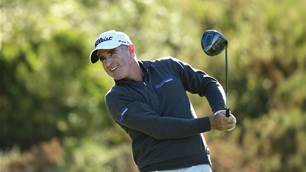
Video interview: Drinks With ... Matt Millar

How to watch the Australian Open
